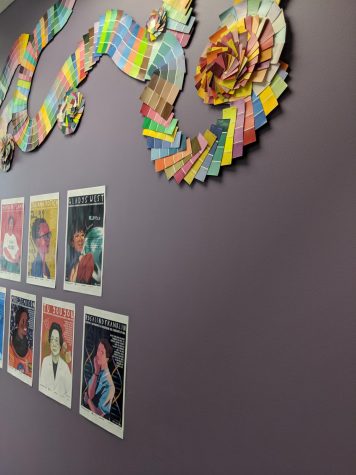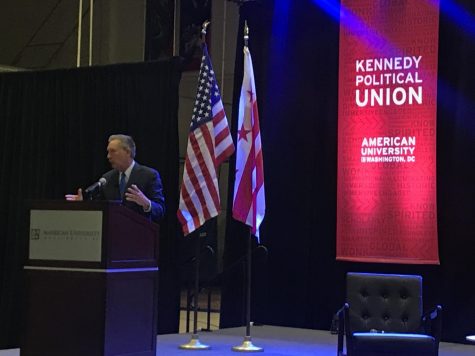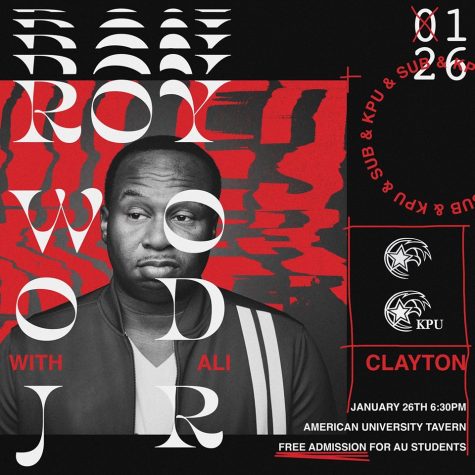Crunching Stats on Sexual Assault AT AU: By The Numbers
In March of 2014, “Molly” (who preferred to remain anonymous), had a non-consensual sexual encounter with a student who lived on her floor. Despite taking all necessary steps to report the incident and push it to a hearing, her offender was never punished, leaving Molly frustrated and without closure, asking, “What is the point of such an extensive process if there are n harsh consequences?”
American University is one of 145 universities in the United States currently under review by the U.S. Department of Education for its handling of reports of sexual violence. While opening an investigation does not necessarily mean that the university is at fault, these investigations stem from complaints filed under Title IX, meaning that at some point someone at AU filed an official complaint.
Under the Clery Act, universities are required to release information about crime statistics on campus, including statistics about sexual assault. AU’s 2014 security report revealed that 21 forcible sex offenses were reported on campus that year, 19 of which took place in a residential facility. Forty complaints occurred off campus.
Sara Yzaguirre, the victim advocacy services coordinator at the Wellness Center, meets with students who look to the Office of Advocacy Services for Interpersonal and Sexual Violence (OASIS) for mental and emotional support.
“I do as little question-asking as possible,” Yzaguirre said. “My first question is usually, ‘How is your current functioning?’” At this stage, she says she isn’t asking for specific details of the event—if the student chooses to make a formal complaint, that part will come later in the process.
“The common sentiment is, ‘I should’ve done something,’” Yzaguirre said. “This is where trauma response education comes in. Many people have heard of ‘fight or flight;’ when it comes to traumatic experiences; however, ‘freeze’ is the brain’s reaction to this sort of incident.”

Searching for help
According to information released by the Wellness Center, 137 students came to speak to counselors at OASIS during the past academic year. Yzaguirre said that most students who come to see her have experienced sexual assault or rape while at AU, but some come to discuss an incident that happened before they arrived at the university or come on behalf of a friend. More students received help from OASIS than in previous years, which Yzaguirre also attributes to increased awareness about campus resources.
“If the resources are there, people are going to use them,” she said. “The numbers are going up every year, which is good because it indicates increased reporting. It’s difficult to know how to figure out if perpetration rates are going down.”
Of the 83 total complaints filed in 2014, only 15 complainants decided to pursue further action.
Dean of Students Robert Hradsky said he would like to see more cases go to conduct hearings, because the university can’t take direct action against the perpetrator unless victims choose to pursue further action.
“We never want to put any pressure on students to take the case further, but we obviously don’t want perpetrators on our campus,” Hradsky said.
Still, many students feel that the process of reporting and the administration’s support of survivors do not reflect the seriousness of sexual assault on campus.
“I felt like the process was really just checking off boxes,” said Molly. “It makes it seem like the process exists only to be in accordance with Title IX, but will there really be consequences?”
Molly’s incident occurred at the end of March, but because she chose to seek counseling first, she didn’t get in touch with the Dean’s Office until nearly a week later.
She said her initial appointment with Marianne Huger Thompson, the assistant Dean of Students, was very positive. Huger Thompson also met with the perpetrator and filed a no-contact order, which the accused then signed.
“I also signed the no-contact order, but there really are no repercussions for contacting the person,” Molly said. “He tried to contact me after signing it, even leaving me voicemails.” Although Molly said she had been under the impression that the process would be simple after speaking with the Dean’s Office, and that she was encouraged to file a formal report, her case never went to a hearing.
Molly had already informed the deans that she knew the perpetrator was considering transferring out of AU. But, because the end of the semester was so near, they told her that it was too late to deal with the case immediately and that it would be pushed to the following semester.

“Generally, if a case is brought forward within three weeks of the end of the school year, it has to be picked up again the following semester, because we can’t take action against a student who isn’t currently enrolled in classes,” Hradsky said.
For Molly, this was exactly what happened.
“He did end up transferring, and mid-September this year I got an email from the Dean’s Office saying that he was not enrolled in classes and therefore my case wouldn’t be going any further,” she said.
Even though AU had closed the case, for Molly it still isn’t over.
“He lives nearby, and even though he isn’t enrolled I’ve seen him on several occasions already this year in Tenley and even on campus, and it’s even worse because we have a lot of mutual friends,” she said. “I felt like my case was unnecessarily ignored, especially because I was encouraged to file a report and then nothing happened.”
Trying transparency
There are three different surveys currently administered at AU concerning sexual assault experiences.
“The results of these surveys inform how we move forward in many areas,” said Hradsky, who also serves as chairman of the Sexual Assault Working Group (SAWG). He explained that changes in staffing and educational programming as well as training for faculty, staff and student leaders are heavily influenced by the survey results. For example, the administration implemented the Empower AU and Think About It programs in response to the results.
“We strive to be completely transparent and we also want to make sure that people accurately interpret the data they are reading, so that the results are not misinterpreted or misrepresented,” Hradsky said. Because only a small, random portion of the student body is surveyed, examining the demographics of the respondents is vital because they are likely slightly different from the demographics of the student body in general, causing some groups to be under- or overrepresented.
While Hradsky said SAWG ultimately hopes to improve transparency, he also believes it is important for students to attend town hall meetings and read the emails from the university that detail sexual assault initiatives on campus.
Making Progress?
Within the past few years, AU has also introduced the Step Up Bystander Intervention Program and Empower AU, a peer-led, sexual assault prevention workshop. During Welcome Week 2015 1,790 students were trained in consent, bystander intervention and communication through Empower AU, while 2,400 students received Step Up training in the fall of 2014. The workshops also focused on de-stigmatizing talk about sexual communication, setting the expectation that consent is absolutely mandatory and educating students about campus resources.
AU continues to make changes to campus resources and the processes regarding sexual violence using the results of student surveys and the input of several different campus organizations. On October 30, the Office of Campus Life announced the appointment of the university’s first full-time Title IX Program Officer.
The discussion continues outside of the AU bubble as well, most notably on Capitol Hill, where national fraternity and sorority groups hired Trent Lott, a former senator from Mississippi, to help push forward the “Safe Campus Act.”
The act was orginally supported by a coalition made up of the National Panhellenic Conference, the North American Intrafraternity Conference and fraternities Kappa Alpha Order, Alpha Tau Omega and Sigma Nu. However, both the Panhellenic Conference and the Intrafraternity Conference and the three fraternities pulled their support after eight sororities publically stated they would not support the bill, according to the Huffington Post.
The Safe Campus Act would require that local police be involved in incidents of sexual assault on campuses in order for colleges to punish perpetrators. Administration would still be able to discipline students for other illegal acts; however sexual assault cases not involving the police would go no further.
“I am 100 percent against it,” Yzaguirre said of the bill. “From an advocacy perspective, it is important that survivors maintain control over their reporting and recovery process. A stipulation that they would be unable to report or pursue a complaint without going to the police takes away options, full stop.”
Supporters of the bill, including former national Chi Omega advisor Cleta Mitchell, feel that the requirement to involve law enforcement will ensure that sexual assault offenders are prosecuted to the fullest extent of the law, rather than the fullest extent of campus action, helping to eliminate the issue of unresponsive universities.
Still, Yzaguirre insists that the legislation fails to support the needs of victims.
“The act will likely have a ‘chilling effect’ on reporting, meaning numbers will go down because fewer people will report their assaults,” Yzaguirre said. “In this case, lower numbers will not mean that campuses will be any safer.”
The controversy surrounding the bill brings into consideration many of the ramifications of sexual assault and university response.
For Molly, whose case never went to trial, speaking up about sexual assault yielded little response and no closure. This indicates that despite the many changes being made both on campus and off, universities have a long way to go when it comes to supporting the victims of sexual assault.
“If people could feel assured that our school takes a hard stance on sexual assault cases and perpetrators, I think it would change the culture,” she said. “But because it takes so much to decide to press formal charges against someone, to have nothing done about it is really disheartening.”






